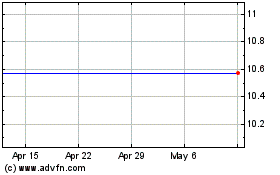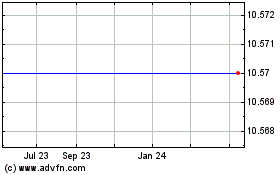U.K. Companies Penalized for Failing to Pay Suppliers on Time
July 17 2019 - 1:17PM
Dow Jones News
By Nina Trentmann
A professional body for the credit management industry took
action against Prudential PLC, BT Group PLC, British American
Tobacco PLC and other British companies for failing to pay
suppliers on time.
The U.K.'s Chartered Institute of Credit Management on Wednesday
suspended 18 companies from the Prompt Payment Code, a set of rules
governing supplier payments that more than 2,000 U.K. companies
have agreed to follow. By voluntarily signing the code, firms
oblige themselves to settle 95% of all supplier invoices within 60
days.
The CICM monitors companies' compliance with the code on behalf
of the U.K. government but doesn't have additional enforcement
powers beyond suspension from the code. It releases a report on
compliance with the code on a quarterly basis.
Companies suspended from their membership in the code must form
an action plan to improve their payment performance and can be
reinstated once they demonstrate compliance with the code, the CICM
said. A suspension can result in negative publicity for a company,
among other things.
Large companies with lots of buying power carry substantial
leverage in negotiations with suppliers. Delayed payments can free
up working capital enabling finance chiefs to strengthen financials
at the quarterly close.
The move by the CICM comes amid increasing concerns about
corporate payment practices.
About one-third of payments to small businesses in the U.K.
arrive late and about 20% of enterprises are facing cash flow
problems because of late payments, according to figures from the
U.K. government.
Late payments increase in times of economic volatility,
according to the Federation of Small Businesses, which represents
160,000 small firms in the U.K. Uncertainty around Britain's exit
from the European Union is likely resulting in more late payments,
according to the group.
The U.K. government last month presented steps to improve the
payment culture among British companies.
As part of the proposal, the office of the Small Business
Commissioner -- an independent public body tasked with tackling
late payments in the private sector -- could see its remit expanded
to include the ability to fine companies that miss their payment
targets or to impose binding payment plans.
Audit committees could be obligated with reporting on the
payment practices of their company in the annual report. The Small
Business Commissioner, Paul Uppal, would take over the
administration of the payment code.
"We will continue to challenge signatories to the code if the
obligatory payment practice reporting data suggests that their
practices are not compliant," said Philip King, chief executive of
the CICM, in a statement.
Large U.K. companies are required to disclose twice a year how
frequently they pay their suppliers.
BT, the British telecommunications company, has agreed to an
action plan with the CICM and has begun implementing it, according
to Saul Markcoons, a spokesman for the company. BT settles 87% of
invoices from small businesses in less than 60 days, and spent more
than GBP9.2 billion ($11.44 billion) on this type of bill in 2018,
he said.
British American Tobacco, a London-based cigarette maker, plans
to have an action plan in place by the end of the year, according
to Simon Cleverly, the company's head of corporate affairs.
Prudential PLC, an insurer, said it is committed to paying
external service providers promptly.
The Federation of Small Businesses said more needs to be done to
strengthen the enforcement powers of the payment code.
"It does not have enough teeth," Alan Soady, a spokesman for the
FSB, said. Eighty-four percent of FSB member companies report they
are being paid late.
Write to Nina Trentmann at Nina.Trentmann@wsj.com
(END) Dow Jones Newswires
July 17, 2019 14:02 ET (18:02 GMT)
Copyright (c) 2019 Dow Jones & Company, Inc.
BT (NYSE:BT)
Historical Stock Chart
From Dec 2024 to Jan 2025

BT (NYSE:BT)
Historical Stock Chart
From Jan 2024 to Jan 2025
